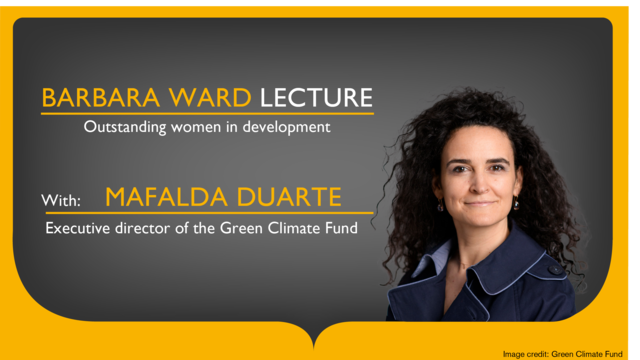French lead drive for global climate agreement
There is much debate as to whether the Paris climate summit can deliver an adequate response to the challenge of climate change. In the wake of the tragedy of last Friday's attacks in the French capital, Andrew Norton pays tribute to France's efforts to secure an ambitious agreement and hopes for success.


People use the pavement on Boulevard Richard Lenoir, close to the Bataclan concert venue which was the focus of the Paris attacks on 13 November, 2015, to share messages of support, and hope (Photo: Gael_Lombart, Creative Commons, via Flickr)
The French diplomatic effort to lay the groundwork for a successful outcome to the COP21 climate conference has been outstanding.
Embassies around the world have made climate change their top priority for the last year. President Hollande has visited world leaders urging them to come to the COP. Foreign minister Laurent Fabius has been active – most recently pulling up US Secretary of State Kerry for suggesting that the Paris outcome would not be an international "treaty".
Following the tragic events of last Friday in Paris there would be no greater act of international solidarity than for the world's leaders to agree the ambitious, effective deal that the French government has worked so hard to secure.
As the world's climate crosses the threshold of one degree of warming above pre-industrial levels, the signs are increasingly evident of the widespread damages that unchecked planetary warming will cause – particularly to the world's poorest people and nations.
Whatever the other challenges that countries face, dealing with the climate crisis must remain front and centre in their priorities.
The prospects for success in Paris
There are many reasons to hope that Paris will mark a positive turning point in global climate action. Almost every country (and every one that matters) has submitted a plan for action in the form of Intended Nationally Determined Contributions (INDCs). These are the building blocks of a deal, and the process of doing the INDCs has created momentum.
We know that the sum total of greenhouse gas (GHG) reductions contained in these programmes is insufficient to hold us to a reasonable target (current estimates vary between 2.7 degrees and 3 degrees by 2100). But it is a start – and the 'bottom up' process of building on national plans is a new kind of global action that we have never seen before.
Optimistically, there are three other reasons to hope that Paris will mark a turning point:
- Technology change may bolster progress in ways which we do not anticipate at this point
- There are a lot of processes driving change towards a low-carbon future which lie outside of the actions of nation states – from private sector actors and communities, and
- There are encouraging signs that one of the most important 'asks' of Paris – the incorporation of a five-year cycle of review and adjustments of the country commitments to limit GHG emissions – is gathering political momentum.
At the same time there are plenty of reasons to be concerned. While everyone wants a deal – not everyone wants a meaningful, ambitious global agreement with legal force.
The currently envisaged goal of limiting warming to two degrees above pre-industrial levels by 2100 is not sufficient to protect the very existence of many small island states and will likely see huge population displacements in vulnerable states such as Bangladesh and Gambia, and massive damage to livelihoods and well-being elsewhere.
Finance commitments for adaptation to climate change impacts are not big enough and not reaching the poorest countries. Even with the best will in the world – and the best possible outcome from Paris – the journey to 2030 is only one step on the way.
Successfully containing planetary warming requires transformative 'deep decarbonisation (PDF)' of economic systems by 2050. The draft text (PDF) for Paris is weak on measures to tackle the issues that require a step change in collective action between states, such as aviation and maritime issues, or better stewardship of the oceans.
The poverty dimension
We know that a failure to deal effectively with climate change threatens the UN global goal to eradicate extreme poverty up to 2030 and beyond (Sustainable Development Goal 1). The social justice elements of climate change are critical and have to be recognised in the structure and content of an agreement.
IIED has been working with the Least Developed Countries (LDCs) Group in the UNFCCC context to support them in representing the interests of the poorest countries, which are home to many of the people who are most vulnerable to climate change. The LDCs have been a tremendously positive force in the negotiations.
You might imagine that these countries would not be in the forefront of efforts to mitigate greenhouse gas emissions, given that they bear very little historic responsibility for the problem. But you would be wrong.
Forty out of 48 LDCs have prepared and submitted concrete plans to limit their own emissions. Some – such as Ethiopia's – are among the most ambitious in the world.
But these countries also need help to implement their plans, to adapt to the impacts of climate change – and make their voices heard in the international negotiations. Special attention is needed to ensure that adequate climate finance flows reach these countries.
An effective and equitable pathway forward
An ambitious and effective agreement to halt planetary warming is essential, and to be effective it will need to take on board the equity issues – particularly the needs of the poorest countries. In that spirit, there are a few key things we need to see.
As noted above, it seems that the need for a mechanism to continually increase ambition is now broadly recognised. We hope to see this building in strong ambition to achieve a step change in the reduction of emissions at the first review point, before the agreement comes into effect in 2020.
We don't have time to waste and we can't just bet on technology delivering us a safe planet. Politics and diplomacy must drive the change.
Another element we need to see is a commitment to a 1.5 degree long-term goal within a legally binding treaty. Apart from anything else, it is not reasonable to expect small island states to sign up to a 2 degree goal which threatens their long-term existence.
It is vital that we see a step change in finance at scale flowing effectively to LDCs. An effective Green Climate Fund delivering grant aid to the poorest countries is an important ambition, but it will take time to get to that point.
The Least Developed Countries Fund (LDCF) – which has a backlog of approved, technically-sound projects that are currently not funded – could be used to move funding to this group of countries in the shorter term. We also believe that the LDCF can play a useful role in the longer term and hence should be recognised as a long-term part of the funding architecture.
Finally we need to find a way to tackle the supra-national issues. The LDC proposal for a levy on aviation emissions (PDF) would be a good place to start.
We believe that, given the right kind of effort, Paris 2015 can be remembered as a point of hope and positive global change.
Andrew Norton (andrew.norton@iied.org) is the director of IIED.


